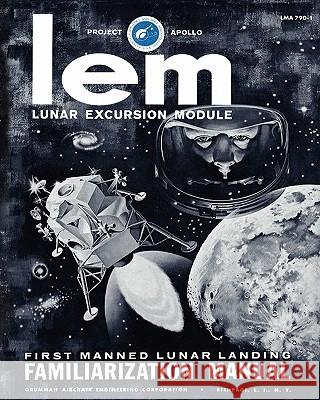LEM Lunar Excursion Module Familiarization Manual » książka
LEM Lunar Excursion Module Familiarization Manual
ISBN-13: 9781935700661 / Angielski / Miękka / 2011 / 164 str.
LEM Lunar Excursion Module Familiarization Manual
ISBN-13: 9781935700661 / Angielski / Miękka / 2011 / 164 str.
(netto: 83,31 VAT: 5%)
Najniższa cena z 30 dni: 75,01
ok. 16-18 dni roboczych.
Darmowa dostawa!
Designed by Grumman's brilliant Tom Kelly, the Apollo Lunar Excursion Module (or "LEM" for short) was a triumph of purpose-built engineering. In the six years 1962-1968 between drawing board and first flight, a myriad of challenges were overcome related to weight, reliability and safety. The final design, designated the Lunar Module or "LM," boasted tiny windows instead of large portholes, four legs instead of five and most famously had no seats instead relying on the astronauts' legs to cushion a lunar landing. Ten LMs made it into space including three flown in development and test missions, and six which landed on the Moon. A seventh famously saved the crew of Apollo 13 when that mission's Command Module suffered a catastrophic malfunction. Originally created for NASA by Grumman in 1964, this LEM Familiarization Manual provides an operational description of all subsystems and major components of the lunar lander. It includes sections about the LEM mission, spacecraft structure, operational subsystems, prelaunch operations, and ground support equipment."
Designed by Grummans brilliant Tom Kelly, the Apollo Lunar Excursion Module (or "LEM" for short) was a triumph of purpose-built engineering. In the six years 1962-1968 between drawing board and first flight, a myriad of challenges were overcome related to weight, reliability and safety. The final design, designated the Lunar Module or "LM", boasted tiny windows instead of large portholes, four legs instead of five and most famously had no seats — instead relying on the astronauts legs to cushion a lunar landing. Ten LMs made it into space including three flown in development and test missions, and six which landed on the Moon. A seventh famously saved the crew of Apollo 13 when that missions Command Module suffered a catastrophic malfunction. Originally created for NASA by Grumman in 1964, this LEM Familiarization Manual provides an operational description of all subsystems and major components of the lunar lander. It includes sections about the LEM mission, spacecraft structure, operational subsystems, prelaunch operations, and ground support equipment.











